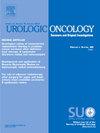临床t1肾肿块决策的患者支持需求和应对机制
IF 2.4
3区 医学
Q3 ONCOLOGY
Urologic Oncology-seminars and Original Investigations
Pub Date : 2025-03-01
DOI:10.1016/j.urolonc.2024.12.060
引用次数: 0
摘要
随着治疗方案的增多,T1期肾肿块的决策变得越来越复杂。由于恐惧、不确定和缺乏理解,大多数患者在决策过程中都会遇到决策冲突。此外,决策冲突可能会促使患者接受不一定符合其优先事项或价值观的治疗。对于医疗决策,患者有各种独特的支持需求,这些需求会影响他们的决策过程、偏好和治疗选择。为了更好地支持这些患者的需求,我们试图描述小肾肿块(SRM)患者的支持需求和应对机制。方法招募40名先前参加GRADE-SRM研究的患者参与随访定性研究,该研究是一项前瞻性临床试验,旨在研究癌症基因组学和肾肿块活检对决策的影响。参与者是根据高(21分)和低(19分)的决策冲突得分以及不同的支持需求和应对策略进行抽样的。训练有素的定性研究人员进行了半结构化访谈,询问参与者有关决策支持需求的问题,包括影响他们决策偏好和应对策略的因素。定性研究人员随后进行了基于编码的主题分析,以定义影响决策的患者支持需求的相关主题。进一步进行事后分析,综合和描述整个队列的支持需求和应对机制。结果40名受访人员平均年龄为65.1岁,男性占58%,白人占72.5%。对准备/过程或健康结果的主要关注往往会推动个人支持需求。注重过程包括管理步骤和整个过程,而注重结果包括对生存或其他健康影响的影响。在事后分析中,患者的支持需求主要分为三类:信息支持、情感支持和工具支持。在每个类别中,患者都希望得到医疗团队和个人支持系统的支持。信息支持包括来自泌尿科医生的医疗咨询和外部建议。患者需要来自医疗和社会的情感支持,但主要需要来自社会网络的工具支持。患者描述了从诊断到治疗的应对机制。这分为四类:依赖信念,控制前景,依赖外部支持,信任泌尿科医生。结论患者在临床T1肾肿块的诊断和决策过程中表现出不同的支持需求和应对策略,我们可以将其绝大多数归类为离散的亚型。此外,患者的支持需求往往是由对过程或结果的关注驱动的。这些发现为如何利用支持需求促进共同决策提供了进一步的理解和背景。改进决策过程的努力可以考虑发展过程中的支持需求、驱动因素和应对机制。本文章由计算机程序翻译,如有差异,请以英文原文为准。
PATIENT SUPPORT NEEDS AND COPING MECHANISMS FOR CLINICAL T1 RENAL MASS DECISION-MAKING
Introduction
Decision-making for T1 renal masses has become increasingly complex as more management options have become available. Most patients experience decisional conflict at some point in their decision-making process due to fear, uncertainty, and lack of understanding. Furthermore, decisional conflict may prompt patients to undergo a treatment that does not necessarily align with their priorities or values. For medical decisions, patients have a variety of unique support needs that impact their decision-making process, preferences, and treatment choice. To better support these patient needs, we sought to characterize support needs and coping mechanisms for patients presenting for small renal masses (SRM).
Methods
Forty patients previously enrolled onto the GRADE-SRM study, a prospective clinical trial examining cancer genomics and the impact of renal mass biopsy on decision-making, were recruited to participate in a follow-up qualitative study. Participants were purposely sampled based on high (21) vs. low (19) decisional conflict scores as well as diverse support needs and coping strategies. Trained qualitative researchers conducted semi-structured interviews asking participants questions related to decision-making support needs including factors that impacted their decision-making preferences and coping strategies. Qualitative researchers then conducted a coding-based thematic analysis to define pertinent themes regarding patient support needs that impact decision-making. Further post hoc analysis was conducted to synthesize and describe support needs and coping mechanisms across the cohort.
Results
Among the 40 interview participants, the mean age was 65.1, with 58% male and 72.5% White. A primary focus on either preparation/process or health outcomes tended to drive individual support needs. A focus on process entailed steps in management and the overall journey while a focus on outcomes encompassed impact on survival or other health effects. Patient support needs fell into three main categories that were identified in post hoc analysis: informational, emotional, and instrumental support. Within each category, patients desired support from both their healthcare team and personal support system. Informational supports included medical counseling from their urologist and advice externally. Patients required emotional support from both medical and social sources but mainly desired instrumental support from their social network. Patients described coping mechanisms employed from diagnosis through treatment. These fell into four categories: relying on faith, controlling outlook, depending on external support, and trusting in their urologist.
Conclusions
Patients display a diverse range of support needs and coping strategies during the process of diagnosis and decision-making for clinical T1 renal masses that we can overwhelmingly categorize into discrete subtypes. Further, patient support needs tend to be driven by either a focus on process or outcome. These findings provide further understanding and context for how support needs may be used to promote shared decision-making. Efforts to improve the decision-making process may consider support needs, drivers, and coping mechanisms during development.
求助全文
通过发布文献求助,成功后即可免费获取论文全文。
去求助
来源期刊
CiteScore
4.80
自引率
3.70%
发文量
297
审稿时长
7.6 weeks
期刊介绍:
Urologic Oncology: Seminars and Original Investigations is the official journal of the Society of Urologic Oncology. The journal publishes practical, timely, and relevant clinical and basic science research articles which address any aspect of urologic oncology. Each issue comprises original research, news and topics, survey articles providing short commentaries on other important articles in the urologic oncology literature, and reviews including an in-depth Seminar examining a specific clinical dilemma. The journal periodically publishes supplement issues devoted to areas of current interest to the urologic oncology community. Articles published are of interest to researchers and the clinicians involved in the practice of urologic oncology including urologists, oncologists, and radiologists.

 求助内容:
求助内容: 应助结果提醒方式:
应助结果提醒方式:


